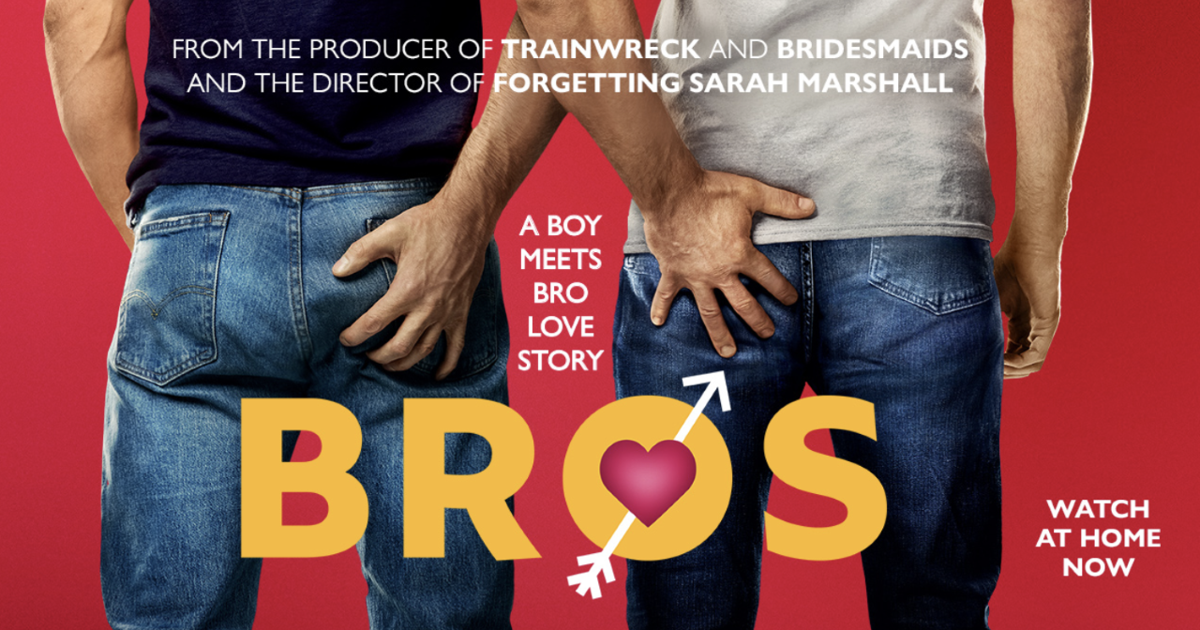
The movie “Bros” is somehow a thorough, all-around flop.
Marketed as the first gay rom-com, the movie attempts to create a classic, Hallmark-esque, romantic comedy with a gay couple as the focus.
Unfortunately, there are issues with everything from the comedic timing to the writing of the characters that make this movie a poor rendition of the cheesy movies we know and love.
But let’s start with a few good things, and when I say a few, I mean literally two things.
Firstly, I will applaud the casting choices. The main characters, most of whom are queer, are all portrayed by actual queer actors. This is significant because almost every “queer” film in the mainstream media – think “Call Me By Your Name” or “Brokeback Mountain” – stars heterosexual men putting on the queer façade like a costume for entertainment purposes.
The second thing that I will acknowledge as something good about this film, and stay with me here, is that it’s bad.
It’s OK to let queer art be bad. In fact, I would argue that it’s good to have a variety of films portraying queer love simply because you cannot represent everyone in one movie. Not every movie can be an award winning cinematic masterpiece like “Moonlight” and we need that casual, cheesy representation of queer relationships in order to pull them out of the unknown.
But all that being said, “Bros” is just hard to watch. I tried to convince myself that the whole thing was satire, but even if it is, it’s still bad.
Billy Eichner co-wrote the film and stars in the movie as the protagonist, Bobby Leiber, who is written as a variation of Eichner himself: a middle-aged, upper class, cisgender, white, gay man who is “hilariously” emotionally unavailable and blames his loneliness on a few stereotypical griefs within the dating world of queer men.
Bobby, despite being the protagonist, is somehow the most unlikable character in the entire movie. It seems that Eichner wrote his character based on the most horrific stereotypes of a white gay man that he could think of.
Bobby’s cynicism is at the forefront of the conflict between him, and his love interest Aaron, played by Luke Macfarlane. We watch as Bobby, a 40-year-old man, struggles to tear down the walls that he built when the world was at war with queer love.
Honestly, the premise of the movie is excellent. At the heart, it’s a wonderfully simple comedy that allows queer people to exist and acknowledge the collective trauma of not being accepted by the world. It’s truly unfortunate that the execution of the movie lacks the substance to make any meaningful connections or lasting impressions other than “what did I just watch?”
The comedic timing is off throughout the movie and makes each jump-cut or carefully placed pause seem out of place. This is made worse by the overly scripted dialogue and lack of chemistry between the main characters.
The movie feels like Eichner and a few of his friends decided to make a movie with their iPhones and tried to include queer voices but also pander to the straight audience by making queer relationships look ridiculous and nonsensical: the very thing that drives harmful stereotypes of queer love.
Finally, I have issues with the continuation of the cis white man being at the forefront of representation.
Eichner literally plays with this idea by giving his own character the task of “rewriting queer history” through being the director of the first LGBTQ+ history museum and creating ridiculously forced dialogue to name-drop Marsha P. Johnson and Sylvia Rivera.
This feels wrong. Why would you consciously use the constant erasure of queer history in a way that reinforces the fact that cis white men still hold power over groups of people who face different forms of oppression because of their gender and race?
Even Eichner’s own Jewish heritage is downplayed in the movie. Bobby only makes a few stereotypical jokes to even indicate that his character is Jewish.
It feels performative. This movie feels like we haven’t moved past the fact that white men still control the narrative and dictate what is viewed as progress.
Final Rating: 3/10








